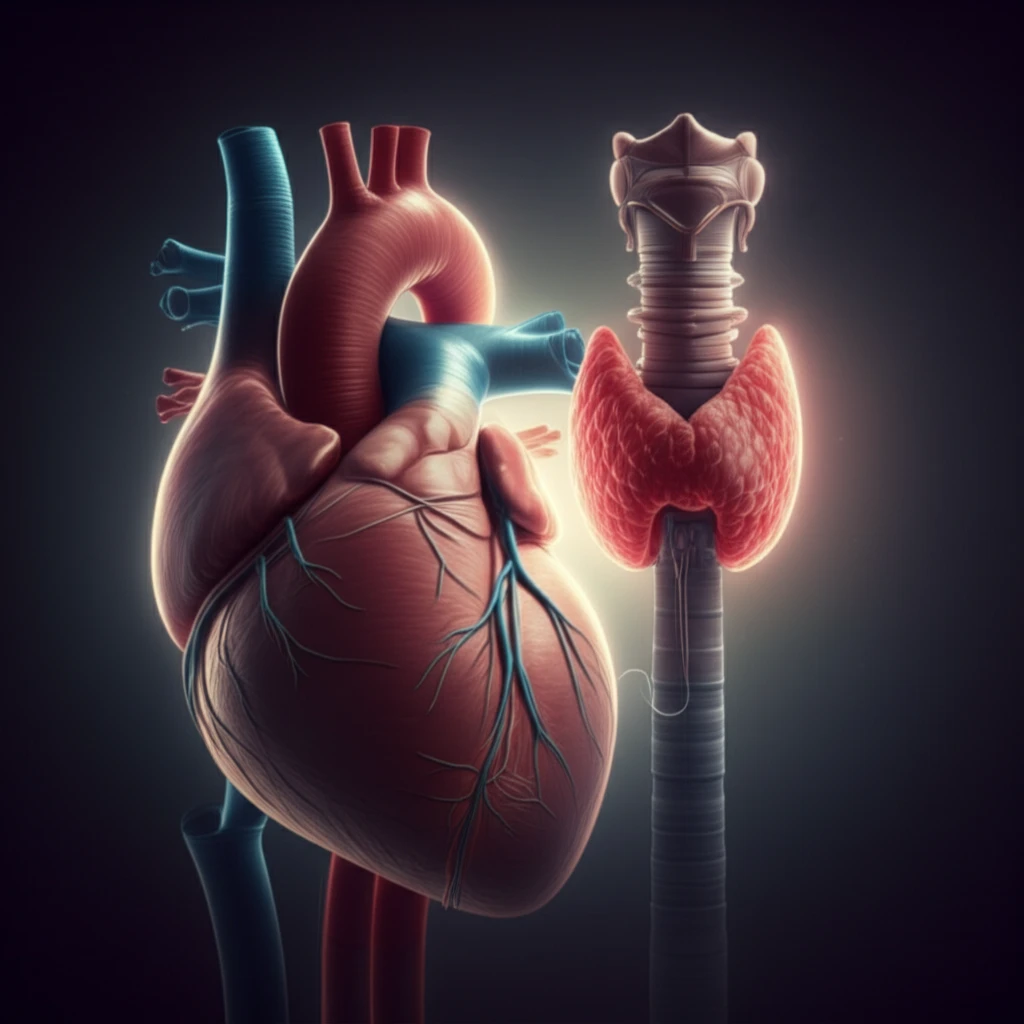
Navigating the Tightrope: Coronary Bypass in Hypothyroid Patients - A Perioperative Guide
"Discover expert strategies for managing hypothyroid patients undergoing coronary bypass surgery, ensuring safer and more predictable outcomes."
Coronary artery bypass grafting (CABG) is a common procedure, but when a patient also has hypothyroidism, the situation becomes significantly more complex. Hypothyroidism, a condition where the thyroid gland doesn't produce enough thyroid hormone, can lead to a host of cardiovascular challenges. These include a weakened heart, increased vascular resistance, and unpredictable responses to common medications used during surgery. This article aims to provide an easy-to-understand guide on how to manage these patients effectively, drawing from recent research and expert recommendations.
The heart of a hypothyroid patient is often more sensitive to the depressant effects of anesthesia and other drugs. The cardiovascular system may be sluggish, with a reduced heart rate and cardiac output. Moreover, the body's ability to regulate blood pressure through baroreceptor reflexes can be impaired. This combination of factors can make it difficult to maintain stable hemodynamics—the balance of blood flow and pressure—during surgery. Adding to the complexity, some patients with ischemic heart disease may experience angina or even myocardial infarction if thyroid hormone replacement is started too aggressively before surgery.
Balancing the risks of hypothyroidism with the need for cardiac surgery requires a delicate approach. This article explores how to optimize patient care by focusing on careful preoperative assessment, tailored medication strategies, and vigilant monitoring throughout the perioperative period. Whether you're a healthcare professional or someone seeking information for a loved one, understanding these strategies can lead to better outcomes and a smoother surgical journey.
What Makes Hypothyroid Patients a Challenge for CABG?

Hypothyroidism presents several unique challenges during CABG, primarily due to its effects on the cardiovascular system. The condition often leads to a decreased sensitivity to adrenergic drugs, which are commonly used to support heart function during surgery. This insensitivity, coupled with an already weakened heart, can result in unpredictable responses to standard treatments. Furthermore, the increased systemic vascular resistance (SVR) in hypothyroid patients adds to the heart's workload, making it harder to maintain stable blood flow and pressure during the procedure.
- Decreased sensitivity to adrenergic drugs
- Increased systemic vascular resistance
- Impaired calcium handling in heart cells
- Reduced myocardial contractility
- Potential for reduced heart rate and cardiac output
Key Takeaways for Managing Hypothyroid Patients Undergoing CABG
While managing hypothyroid patients undergoing CABG can be complex, a proactive and well-informed approach can significantly improve outcomes. It's ideal to optimize thyroid function preoperatively, aiming for a near-normal or mildly hypothyroid state rather than operating on a patient with severe hypothyroidism. Levosimendan may be a beneficial inotrope choice due to its mechanism of action that doesn't rely on β-adrenergic receptors, effectively counteracting the adverse effects of reduced thyroid hormone levels, such as decreased cardiac contractility and increased SVR. Further research is needed to fully understand the effectiveness of these strategies, but current evidence suggests that a tailored, vigilant approach can lead to safer and more predictable outcomes for these challenging cases.
